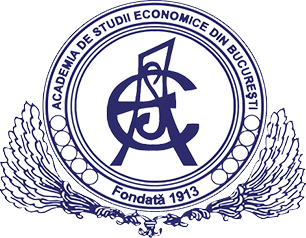Master of Applied Finance
Return on Education in the Know of Finance
Director’s Welcome

Dear Prospective Students,
In today’s challenging yet interesting times of the AI economy, education for a top job in finance is a key strategic advantage. Our program delivers practical knowledge, trains you in the necessary skills, and develops your abilities to enjoy and succeed in your profession and life. Be smart and learn about things that interest you, that make you happy and interested. MAF is a good start. Success!
Professor of Behavioral Investment Finance, Faculty of Finance, Bucharest University of Economic Studies
Dr. Adrian T. Mitroi, CFA, MBA
Learn the know-how in Finance
Our Master program equips graduates with the skills to lead careers in corporate banking and finance, stock-market trading, insurance, investment management. It is an ideal qualification for those looking to upskill in finance regardless of age or previous degree.
Corporate Finance
Learn how to handle corporate financial decisions and delve into the tools and analyses often used to make these decisions.
Financial Risk Management
Acquire an understanding of the key aspects of risk management in business and learn more about how to analyze and quantify corporate risk.
Investment Analysis
Explore the utilization of security valuation and portfolio management, and delve deeper into equity, debt, and derivative markets.
Invest in your future
-
Taught in English: A globally recognized language of finance, ensuring international opportunities.
-
Tuition scholarships: Financial support available for eligible candidates.
-
Flexible schedule: Evening courses from 18:00 to 21:00, tailored for professionals who balance work and study.
-
Study in Bucharest: Experience the prestigious Bucharest University of Economic Studies (ASE).
-
International curriculum: Study a program that’s fully aligned with global finance standards, designed to propel your career forward.
-
Program duration: Complete the program in two academic years (October to July).
-
Dual admission opportunities: Apply in July or September – two chances to begin your journey.
-
Entry requirements: A Bachelor’s diploma or equivalent is required.
-
Learn from Industry Leaders: Gain exclusive insights from guest speakers at the Financial Supervisory Authority (ASF) and the National Bank of Romania (BNR).
Bucharest University of Economic Studies
Our Vision

In an increasingly competitive education landscape, our program stands out as a beacon of specialized excellence, both locally and internationally. At the heart of our appeal lies our focus on precision and specialization. We understand that students have unique interests and passions, and our program caters to these aspirations. Our primary objective is to establish ourselves as a reputable and adaptable program in the field of master’s degree education.
In today’s dynamic job market, there is a growing demand for experts in economics, business administration, marketing, and finance. These professionals play a vital role in addressing evolving market needs. The landscape is characterized change and unpredictability, making practical knowledge and skills essential.
The Master of Applied Finance is designed to anticipate and address dynamic global challenges and changes. We emphasize practical education, equipping graduates with essential tools for roles involving financial operations, institutions, management, performance assessment, cost control, and risk management. Equipped with a blend of theoretical knowledge and practical skills, our graduates are perfectly poised for real-world application in the ever-evolving market and competitive professional environments.
Our Core Values

🌱Character Development: The program aims to produce graduates with not only exceptional technical skills but also integrity, resilience, and a commitment to ethical decision-making. This holistic approach is integral to our vision, ensuring that our students emerge as leaders with strong moral and ethical compasses in the financial industry.
🎓Niche Knowledge: Staying current with the latest financial trends, technologies, and regulations is essential. The program ensures students have access to up-to-date information and are prepared to adapt to changes in the financial landscape.
💼Career Development: The program is dedicated to empowering students and graduates to succeed in their careers.
🏆Excellence: The program is committed to delivering a high-quality education that offers students a profound understanding of financial theory and practice.
Our Principles
Professionalism
We are committed to excellence in teaching, research, and activities aimed at advancing and benefiting society.
Responsability
We accept the consequences of our decisions, fostering a culture of accountability and trust.
Confidence
We foster an environment that encourages self-belief and a collective belief in our capacity to succeed.
Integrity
We uphold the values of the economist specializing in applied finance, in accordance with the Code of Deontology and Professional Ethics.
Dedication
We bring passion and enthusiasm to our educational and research efforts within the academic community.
Loyalty
We uphold and promote the values that make our academic community unique and strong.
Our Objectives
Strategic Thinking and Analysis
– Develop critical, analytical, and synthetic thinking skills for a comprehensive understanding and approach to finance on both national and international scales.
– Cultivate strategic thinking to promote effective finance strategies in managing companies, as well as individual and institutional investments.
Professional Skills Development
– Acquire skills in interpreting and utilizing specific regulations for making informed applied finance decisions in company management, correlated with associated risks.
– Gain insights into the role of accounting in business evaluation, recognition, and management.
– Obtain basic legal knowledge in applied finance law and its relevance to civil law.
– Develop skills for applying finance rules in the context of social, sustainable, equitable, and inclusive societal development.
– Appropriately determine and declare local taxes and fees.
– Learn practical techniques for identifying constraints and freedom in enterprise management.
– Experiment with theories, principles, methods, techniques, and tools specific to applied finance for financial, operational, and investment risk management.
Foundational Finance Knowledge
– Acquire comprehensive knowledge about finance, especially in managing business finances and professional investment management.
– Understand the adaptability required finance professionals in an increasingly dynamic environment driven the artificial intelligence economy.
– Foster a sense of ethics and social responsibility.
– Understand the content and role of the applied finance system.
– Learn fundamental concepts in finance applied to financial management.
Student’s benefits
- Merit/Social/Performance Scholarships
- Erasmus+ Mobility Grants
- Student dormitories
- Career counseling and mental health support
- Student events (job fairs, competitions)
- Student organizations and sport clubs
- Medical office and free dental care
- Access to digital and physical learning resources
- On-campus sports facilities
- Discounts on public transportation and train, museums and cultural events



